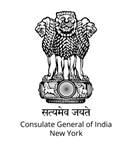
Statement by India under General Debate Agenda 8
In the 41stSession of the Human Rights Council ( 24 June – 12 July 2019),
delivered by Ms. Mini Devi Kumam, First Secretary,
Permanent Mission of India, (Geneva, 08th July 2019)
Mr. Vice President,
The universality of human rights is at the core of VDPA that guides us to treat all rights on equal footing with same emphasis. When one set of rights is given more prominence in the agenda of the Council, it could lead to trust erosion and reluctance to cooperate undermining the very basis for which this Council was established. The right to development deserves its due in the human rights agenda as recognized in the VDPA.
2. The interdependence and the mutually re-enforcing nature of democracy, development and human rights seems to be getting sidelined in the pursuit of objectives that are overtly political in nature. This calls for utmost caution as increasingly contentious and acrimonious dialogue in the Council poses severe challenge to its effective and efficient functioning.
3. The main reason for divergence on priorities and concerns on issues of human rights by member states is not hard to find. Different levels of development, social and cultural contexts and governance systems among the member states have led to disagreements not only on the prioritization but also in the interpretation of various rights. The relative prioritisation of the individual vs State; national sovereignty vs international norms; universal vs culture-specific approach evokes differing opinions.
4. India, therefore, reaffirms its view that a more inclusive, participatory and positive approach through dialogue and capacity building is the best way to promote and protect human rights. Constraints on national capacities to implement certain rights should be duly recognized and the role of the Council in providing technical assistance and capacity building should not be limited only to a few situations.
5. India's approach to human rights continues to evolve as more rights become justiciable and through the process of progressive interpretation of laws by the judiciary. India remains committed to bring in a pluralistic, moderate and balanced perspective to help bridge multiple divides in the human rights discourse.
Thank you, Mr. Vice President.
********












